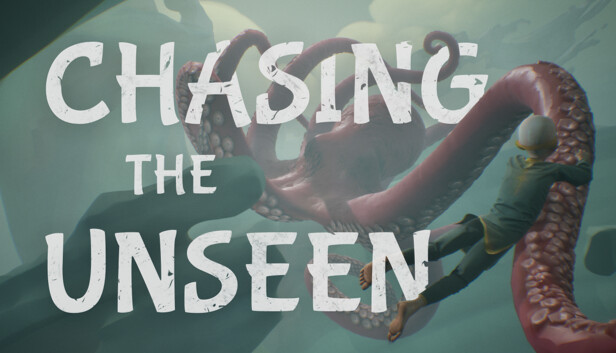The glittering facade of professional esports, with its packed arenas, celebrity players, and multi-million dollar prize pools, often obscures a far more complex reality for those who dedicate their lives to it. For every superstar signing lucrative deals, countless others navigate a volatile landscape, facing uncertain futures when their time in the digital spotlight fades. This stark duality was recently brought into sharp focus by the surprising revelations of former Dota 2 pro, Ilya “Lil” Ilyuk, and the subsequent blunt critique from renowned content creator, Alexander “Nix” Levin.
From Keyboard Warrior to Courier: Lil`s Unconventional Turn
Ilya “Lil” Ilyuk was once a prominent figure in the professional Dota 2 scene. Known for his aggressive support play and charismatic personality, he achieved considerable success with top-tier teams. His journey mirrored that of many aspiring pros: years of intense practice, sacrificing conventional education and social life in pursuit of competitive glory. However, the capricious nature of esports meant that after nearly two years struggling to secure a stable spot on a professional roster, Lil found himself at a crossroads.
His recent social media posts laid bare a dramatic shift: he is now working as a food delivery driver, operating from a van. Lil shared candid details of his new reality, including earning approximately ₽12,400 (roughly $130-140 USD) in an 8.5-hour shift, a modest income compared to the peak of an esports career. Most strikingly, he posted an image of his living conditions, accompanied by a poignant, self-reflective caption: “This is how the life of a person who dedicated his whole life to Dota without a Plan B looks.” It was a raw, unfiltered glimpse into the potential aftermath of an all-consuming esports pursuit.
The `Victim Mentality` Debate: Nix`s Unsparing Commentary
Lil`s public disclosure ignited a firestorm of discussion within the gaming community, eliciting responses that ranged from empathetic support to critical judgment. Among the more outspoken voices was Alexander “Nix” Levin, a highly respected figure and former professional player who transitioned into a successful content creation career. Known for his no-holds-barred commentary, Nix addressed Lil`s situation directly during a live Twitch stream.
“[Lil], of course, generally… He is the number one victim position that exists, I swear to you. The worst thing is to have this type of mindset, it`s just awful. He is such a victim in his world, it`s just awful. That is, he cannot just take responsibility for his life. Again, I say, there is nothing wrong with ordinary life, absolutely nothing.”
Nix`s assessment was unequivocal: he viewed Lil`s narrative as a classic case of “victim mentality,” a perceived reluctance to assume personal accountability for his circumstances. His commentary underscored a belief that there is no shame in pursuing a “normal life” outside the high-stakes world of professional gaming, implicitly suggesting that Lil should embrace his new path rather than lament his past.
The “Plan B” Conundrum: A Universal Lesson for a Niche Career
This public exchange brings to the forefront a critical, yet often uncomfortable, conversation pertinent not just to esports, but to any high-risk, high-reward profession: the indispensable need for a “Plan B.” Professional gaming careers are notoriously short-lived; peak performance often coincides with youth, and the competitive scene is unforgivingly meritocratic. For every player who achieves enduring fame and fortune, countless others dedicate formative years of their lives, only to find themselves at a career crossroads with a highly specialized, often non-transferable skill set.
The intense discipline and singular focus required to compete at the highest echelons often necessitate deferring traditional education, limiting social development outside the gaming ecosystem, and foregoing the cultivation of diverse professional competencies. Players become virtuosos of virtual combat, mastering complex game mechanics and strategic execution, only to discover that the “real world” demands a different kind of dexterity.
So, is Lil`s current predicament primarily a consequence of a lack of foresight, as Nix`s critique implies? Or is it a stark, perhaps unfortunate, reflection of an industry that, while offering immense potential, provides scant safety nets for those who don`t reach its absolute apex? The truth, as often is the case, likely resides in the nuanced interplay between individual agency and systemic realities. Personal responsibility for preparing for life beyond the game is undoubtedly crucial. Yet, the esports ecosystem itself could also evolve to better support player transitions, offering more comprehensive resources for financial literacy, educational pathways, and mental well-being beyond active competitive years.
Beyond the Game: Redefining Success and Sustainability
Lil`s brave, though perhaps raw, disclosure serves as a potent reminder that the trajectory of a professional gamer extends far beyond the final “GG.” It highlights the critical need for a more holistic approach to player development — one that acknowledges the human behind the keyboard and equips them for a sustainable life after the competitive spotlight fades. Whether one interprets Lil`s narrative as a cautionary tale of insufficient planning or a poignant call for greater industry-wide support, it undeniably ignites a vital discussion about the long-term well-being of those who dedicate their lives to the pixels and prestige of esports.
Perhaps the ultimate irony is that in sharing his seemingly “unplanned” reality, Lil has inadvertently contributed to a crucial “plan” for the future of esports: fostering a more robust, empathetic conversation about player welfare and preparation for life beyond the digital arena. For the next generation of aspiring pros, the message is clear: chase your dreams with unwavering passion, but always keep an eye on the scoreboard of life, where adaptability, diverse skills, and a prudent “Plan B” might just be your most valuable assets.







